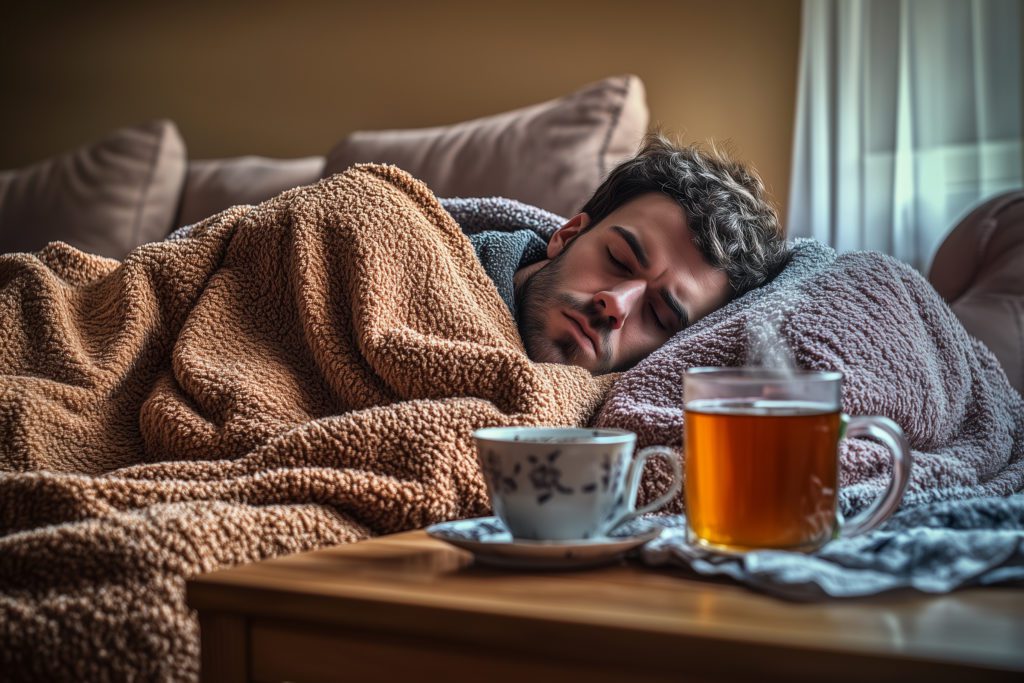
How to Use Sleep to Optimize Your Weight Loss Effort
Losing weight can be a challenging yet crucial undertaking. Explore how certain sleep habits can aid your weight loss journey and maximize your success.

When it comes to your weight loss journey, you’re likely familiar with the importance of following an exercise routine and watching what you eat, but have you ever considered the role of sleep in weight loss? This time of rest may be more important for lowering the number on the scale than you may think.
How Sleep Aids Weight Loss
Losing weight isn’t easy, and maintaining weight loss can be an even bigger challenge. Knowing this, anything that you can do to help your weight loss efforts can mean the difference between losing weight, remaining stagnant, or gaining weight.
The link between poor sleep and obesity is one that has been well-established, with one analysis finding that the risk of obesity increases by 41% when you sleep fewer than 7 hours a night. However, why this link exists is less clear; scientists currently have a few hypotheses about how poor sleep may connect to obesity:
Sleep Lowers Appetite
One of the greatest causes of being overweight is eating too much food, but sometimes you may continue feeling hungry no matter how much food you eat—sleep can help.
Two neurotransmitters that influence appetite are ghrelin and leptin. Ghrelin is what creates those signals of hunger, while leptin is what makes you feel full. However, not getting enough sleep can affect the levels of these neurotransmitters and how well your body is able to regulate them. One study found that getting four hours of sleep caused ghrelin levels to rise, and as a result of these changes, you may feel hungrier while sleep-deprived.
On top of the desire to eat more, sleep deprivation may cause you to favor foods high in calories, perhaps because of your body’s desire to get some quick energy. Studies have also shown that those who are sleep-deprived have greater reward-related responses in their brain activity after seeing images of high-calorie foods, explaining why you may favor high-calorie foods when you’re tired—your brain is offering a greater reward for consuming them. Even more, this desire for high-calorie foods comes even after only one night of inadequate sleep.
Additionally, on a simplistic level: the less time you’re asleep, the more time you’re awake, and the more hours there are for you to consume food.
Sleep Regulates Your Metabolism
Your metabolism is the process by which your body converts food and beverages into energy. While certain activities, such as exercising, can increase your metabolism temporarily, sleep is not one of them, with metabolism lowering while you’re asleep. However, sleep is crucial for regulating your metabolism during the day.
Studies have shown that sleep deprivation often leads to metabolic dysregulation, with symptoms that include glucose intolerance, increased oxidative stress, and insulin resistance. So, the time that you spend asleep at night is crucial for ensuring your metabolism functions as expected during the day.
Not only that, but big changes in your sleep—for example, not getting enough sleep all week and trying to catch up on the weekend—can cause your metabolism to change.
Sleep Gives You Energy to Exercise
Exercise is an important component of a weight loss plan, but sometimes it can be hard to find the energy to stick to your daily workout. When you get enough sleep at night, though, you have the energy needed to follow your exercise plan. Furthermore, not getting enough sleep decreases your attention, making exercise less safe because of the increased risk of injury.
As a bonus, regular exercise also improves sleep quality, so these two habits boost each other, helping you stick to your weight loss plans.
Sleep Lowers Late-Night Snacking
The term midnight snack is a common phrase for a reason, but it may be sabotaging your weight loss efforts. Going to bed early can help you avoid it.
The longer you stay awake, the larger the window you have for eating, which can result in an increase in the amount of calories you consume in a day. Additionally, late at night, you may be less likely to snack on healthy foods because sleep deprivation increases your cravings for high-calorie and high-fat foods.
Late-night snacking has been associated with greater weight gain and decreased fat oxidation, which can impede your weight loss efforts. By going to bed early, you cut out this time of temptation, helping you to stick to your weight loss goals while also prioritizing your sleep.
Tips to Use Sleep to Lose Weight
Knowing the importance of sleep for placing your body in the best possible position for weight loss, here are some tips on how you can use sleep on your weight loss journey.
- Stay consistent. Just like you need to stay consistent in your workout routine and diet, consistency is also crucial for sleep. By going to bed and waking up at the same time each day, you help regulate your circadian rhythm and your metabolism, aiding your weight loss efforts.
- Keep your bedroom dark. Having artificial light in your room while sleeping can impede your sleep, which may be why it has been linked to a greater risk of weight gain and obesity.
- Reduce stress. Stress can keep you up at night by raising your heart rate and keeping sleep just out of reach. Stress can also contribute to weight gain, especially if you find yourself eating to cope with negative emotions. The good news is that one way to reduce stress, exercising, is also a critical component of a weight loss plan.
- Avoid eating before bed. Eating too late at night can reduce how successful your weight loss is. Not only that, but certain foods, such as those high in sugar, may sabotage your sleep, which can further affect your weight loss success.
- Rise early. Research has shown that those who go to bed later may consume more calories, which can then increase your odds of weight gain. So, try to go to bed early and wake up early to boost your weight loss.
Don’t underestimate the importance of good sleep—research shows that even if you watch what you eat and diet, not getting enough sleep can reduce the amount of weight you lose. To help your weight loss effort, rather than hinder it, make sure that you’re prioritizing your sleep.

Written by
Jessica G
Medical writer freelancer who has written hundreds of articles on varying topics. Masters of Engineering degree in Biomedical Engineering.
Download Pillow
Get help
Press & News
Legal
Connect
X (Twitter)
Company
Copyright © Neybox Digital Ltd.



